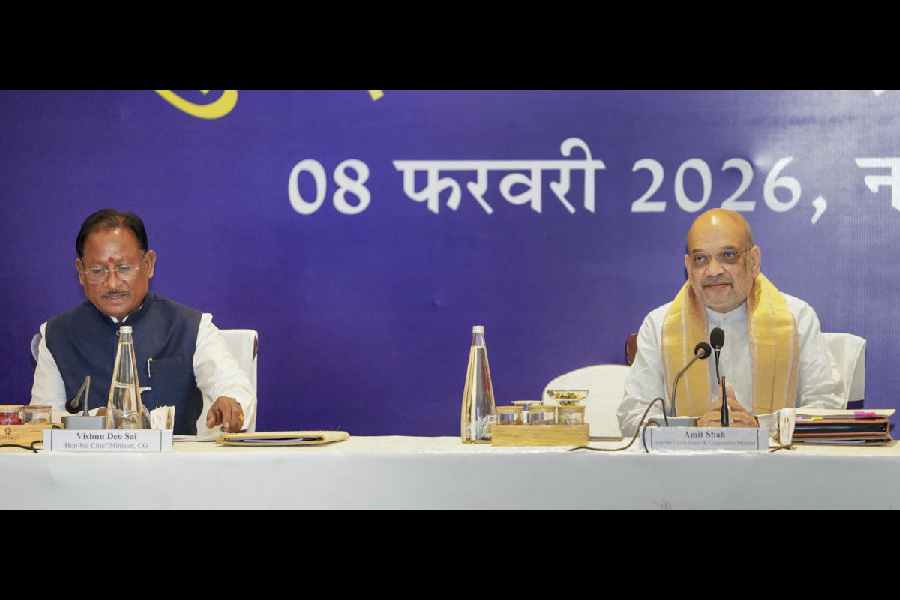Calcutta, Jan. 5 :
Calcutta, Jan. 5:
For Sneha, 9, and Krishnendu, 10, going to class was never such fun before. The reason is not hard to spot - a computer which, for all intents and purposes, has replaced blackboard and books.
And it's not for just Sneha and Krishnendu that learning's suddenly become fun. All 843 students in the Patha Bhaban primary and Montessori sections are 'thrilled' with computers coming into their classrooms.
The school has tied up with Calcutta Creative to developed customised software for each subject, except mathematics. English, history, geography... are all brought to life through graphics and animation.
The CDs are used in classes from Montessori to Class IV, with the teacher providing the voice-over.
The impact of the visual medium is immediate and lasting. For example, in geography, kids react to 'real' scenes from active, dormant and extinct volcanoes, from life in Pompeii... Multimedia and graphics are used to elaborate principles of science and intricacies of English and Bengali grammar.
'Computers are a necessity in today's world. But as we didn't want to add another subject and burden the kids, we have introduced computers in a different way,' explains Pradipta Kanungo, headmistress of Patha Bhaban.
The experiment, which the school authorities introduced in September 2001 after consulting parents, has clearly started yielding positive results.
Computer-aided learning in class has helped teachers 'communicate in a comprehensive way and innovate in their teaching style', and the students have been found to be 'more attentive' in class.
So, is it bye-bye blackboards? Well, not with just one computer in each class. 'Also,' says Kanungo, 'for spontaneous description, the blackboard is still the best tool... Supplementing it with computers can work wonders. Our experience confirms that the audio-visual medium has a lasting impact on kids' and they enjoy the process of learning without much stress.'
Tanmoy Bhattacharya, director and CEO of Calcutta Creative, is confident that the Patha Bhaban experiment will lead to 'a major change' in the way kids are taught in schools.
'We have already sent proposals to more than 30 city schools and most are contemplating introducing the system from the next session,' said Bhattacharya.
 Monday, 09 February 2026
Monday, 09 February 2026









